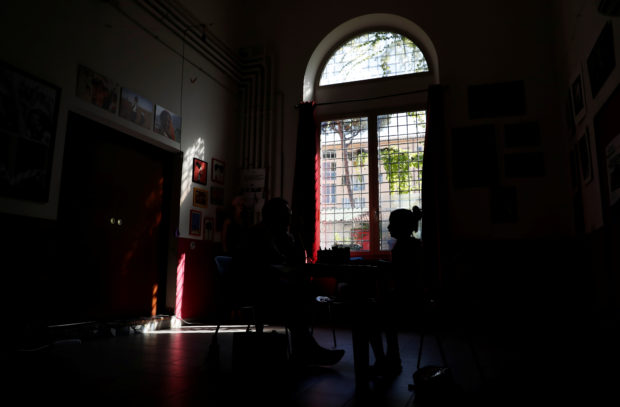
An activist talks to a child of a domestic abuse victim who used to live in Rome’s ‘Lucha y Siesta’ (Fight and Rest) women’s house, a building run solely by activists to look after women suffering from domestic violence in the city, in Rome, Italy, July 9, 2020. REUTERS/Yara Nardi
LONDON — Only one in eight countries worldwide have brought in measures to specifically protect women from the impact of the coronavirus pandemic, according to a database of government responses to COVID-19 launched by two United Nations agencies on Monday.
The crisis offers a chance to reshape societies for a fairer future, but many nations are failing to protect women and girls from pandemic-linked risks such as a surge in domestic abuse, said U.N. Women and the U.N. Development Programme (UNDP).
“The COVID-19 pandemic is hitting women hard – as victims of domestic violence locked down with their abusers, as unpaid caregivers in families and communities and as workers in jobs that lack social protection,” U.N. Women Executive Director Phumzile Mlambo-Ngcuka said.
While 71% of all gender-related measures identified focused primarily on preventing violence against women and girls, only 10% aimed at strengthening women’s economic security. Less than a third of the policy measures focused on unpaid care work.
The COVID-19 Global Gender Response Tracker analyses state responses to the pandemic in 206 countries to assess whether they include measures to tackle violence against women and girls, support unpaid care or boost women’s economic security.
One in five countries failed to bring in COVID-19 responses in any of the three areas, they found, and just 12% had taken action in all of them.
Higher-income countries were more likely to have taken action to protect women and girls, the database showed.
In Europe, 93% of countries had taken at least one measure, as compared to just 63% of African nations.
But the pandemic may still bring positive changes, said UNDP Administrator Achim Steiner.
“The COVID-19 crisis provides an opportunity for countries to transform existing economic models towards a renewed social contract that prioritizes social justice and gender equality,” he said.